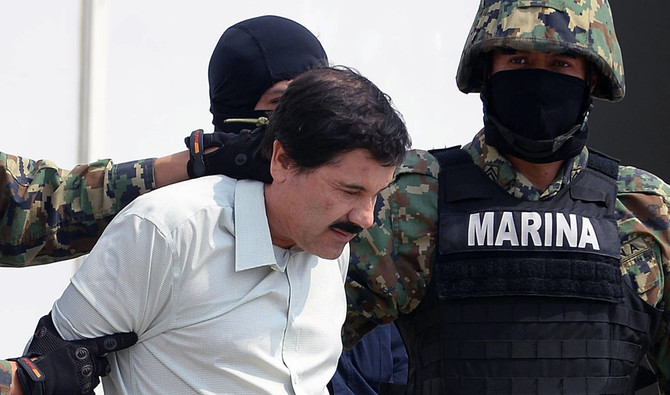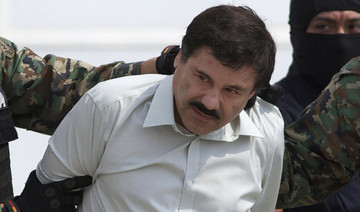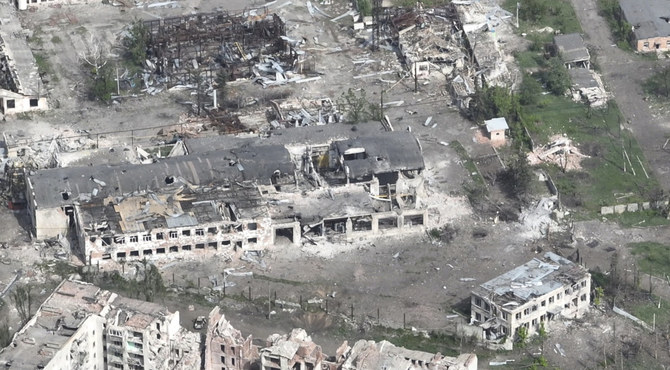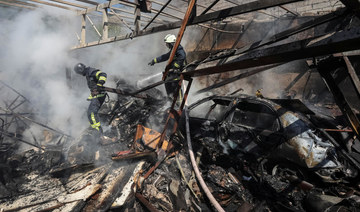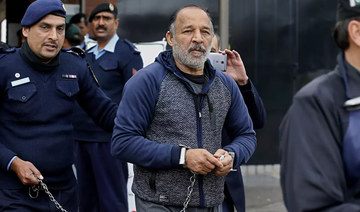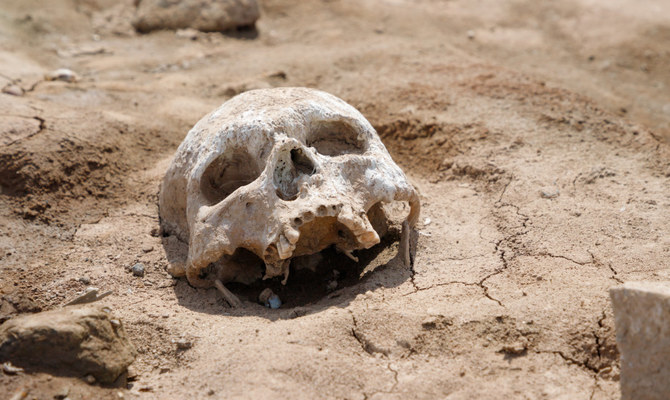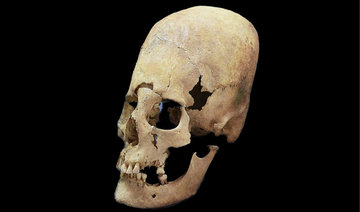NEW YORK: The world’s most infamous cartel boss Joaquin “El Chapo” Guzman, who rose from poverty in rural Mexico to run a global drug empire and amass billions of dollars, was found guilty in a US court on Tuesday of drug trafficking.
Jurors in federal court in Brooklyn found Guzman, 61, guilty on all 10 counts. He now faces a possible sentence of life in prison.
Guzman, one of the major figures in Mexican drug wars that have roiled the country since 2006, was extradited to the United States for trial in 2017 after he was arrested in Mexico the year before.
Though other high-ranking cartel figures had been extradited previously, Guzman was the first to go to trial instead of pleading guilty.
The trial, which featured testimony from more than 50 witnesses, offered the public an unprecedented look at the inner workings of the Sinaloa Cartel, named for the state in northwestern Mexico where Guzman was born in a poor mountain village.
The legend of Guzman was burnished by two dramatic escapes he made from Mexican prisons and by a “Robin Hood” image he cultivated among Sinaloa’s poor.
US prosecutors said he trafficked tons of cocaine, heroin, marijuana and methamphetamine into the United States over more than two decades, consolidating his power in Mexico through murders and wars with rival cartels.
Small in stature, Guzman’s nickname means “Shorty.” His smuggling exploits, the violence he used and the sheer size of his illicit business made Guzman the world’s most notorious drug baron since Colombia’s Pablo Escobar, who was shot dead by police in 1993.
Guzman’s lawyers say he was set up as a “fall guy” by Ismael “El Mayo” Zambada, a powerful drug lord from Sinaloa who remains at large.
Drug wars
Mexico has been mired for 12 years in a deadly military-led war against drug gangs. President Andres Manuel Lopez Obrador was elected last year after promising a change, suggesting a negotiated peace and amnesty for non-violent drug dealers, traffickers and farmers.
The most detailed evidence against Guzman came from more than a dozen former associates who struck deals to cooperate with US prosecutors.
Through them, jurors heard how the Sinaloa Cartel gained power amid the shifting allegiances of the Mexican drug trade in the 1990s, eventually coming to control almost the entire Pacific coast of Mexico.
They heard how Guzman made a name for himself in the 1980s as “El Rapido,” the speedy one, by building cross-border tunnels that allowed him to move cocaine from Mexico into the United States faster than anyone else.
The witnesses, who included some of Guzman’s top lieutenants, a communications engineer and a onetime mistress, described how he built a sophisticated organization reminiscent of a multinational corporation, with fleets of planes and boats, detailed accounting ledgers and an encrypted electronic communication system run through secret computer servers in Canada.
A former bodyguard testified that he watched Guzman kill three rival drug cartel members, including one victim who he shot and then ordered to be buried even as he was still gasping for air.
Estimates of how much money Guzman made from drugs vary. In 2009, Forbes Magazine put him on its list of the world’s richest people, with an estimated $1 billion. It later dropped him from the list, saying it was too difficult to quantify his assets.
The US Justice Department said in 2017 it sought forfeiture of more than $14 billion in drug proceeds and illicit profits from Guzman.
The trial also featured extensive testimony about corruption in Mexico, most of it involving bribes to law enforcement, military and local government officials so the cartel could carry out its day-to-day drug shipping operations undisturbed.
The most shocking allegation came from Guzman’s former top aide Alex Cifuentes, who accused former Mexican president Enrique Pena Nieto of taking a $100 million bribe from Guzman. A spokesman for the ex-president has denied the claim.
In one of the trial’s final days, Guzman told the judge he would not testify in his own defense. The same day, he grinned broadly at audience member Alejandro Edda, the Mexican actor who plays Guzman in the Netflix drama “Narcos.”
Despite his ties to government officials, Guzman often lived on the run. Imprisoned in Mexico in 1993, he escaped in 2001 hidden in a laundry cart and spent the following years moving from one hideout to another in the mountains of Sinaloa, guarded by a private army.
He was seized and imprisoned again in 2014, but pulled off his best known escape the following year when he disappeared into a tunnel dug into his cell in a maximum security prison.
But the Mexican government says he blew his cover through a series of slip ups, including an attempt to make a movie about his life. He was finally recaptured in January 2016 following a shootout in Sinaloa.



